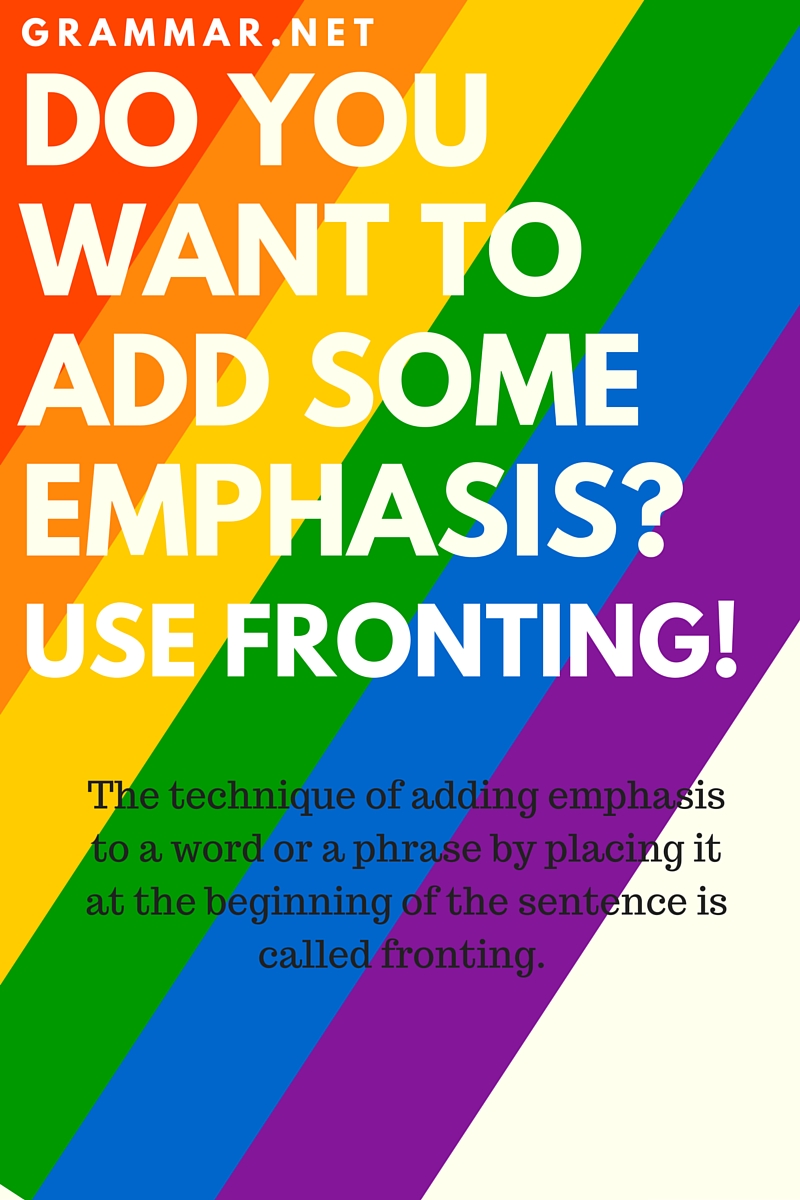The technique of adding emphasis to a word or a phrase by placing it at the beginning of the sentence is called fronting. The main clause and sentence subject will now follow after the “fronted” word or phrase, where the fronted words would normally follow the main verb. This technique is also called “front-focus” or “preposing” and is a solid and common way to use composition as a tool for emphasis.
To punctuate the fronting of a clause, a comma can be added between the phrases where it feels like there is a natural pause.
“William will arrive by plane the day after tomorrow.”
“The day after tomorrow, William will arrive by plane.”
“The plane will be ready for takeoff in about twenty minutes.
“In about twenty minutes, the plane will be ready for takeoff.”
“Please take me with you when you go to the store.”
“When you go to the store, please take me with you.”
These clauses can contain questioning and they are fronted in the same fashion. As in the first sentence of each example, no question marks are required. This questioning form is very common in English, especially in spoken conversation, and is almost an idiom in itself; to a native ear, the sentence might seem awkward if composed any other way.
“I will never know how my dog got the Barkies out of the cupboard.”
“How my dog got the Barkies out of the cupboard, I will never know.”
“Bubba would never know why he married Ethel.”
“Why Bubba married Ethel, he would never know.”








